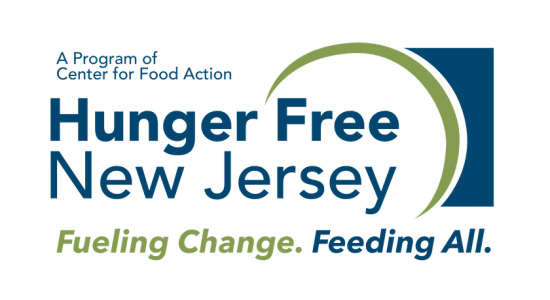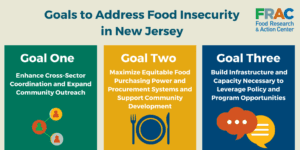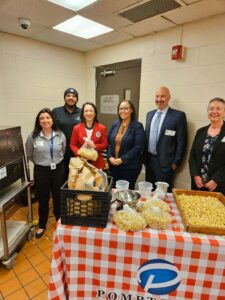By Geri Henchy, FRAC’s Director of Nutrition Policy and Early Childhood Programs and Katie Jacobs, FRAC’s Early Childhood Nutrition Programs and Food Systems Associate
At the height of the pandemic, 285,000 New Jersey households did not have reliable access to affordable, nutritious food, according to a new report from FRAC, with support from the Robert Wood Johnson Foundation (RWJF). Black and Latino households were more likely to experience hunger at two to three times the rate of white households. This is just another troubling example of how the COVID-19 pandemic has exasperated the longstanding racial and ethnic disparities in the state, and across the country. Hunger and Its Solutions in New Jersey: Landscape Analysis of Current Initiatives, Recommended Action, and Emerging Opportunities for Further Investment aims to inform stakeholders about what additional policies, systems changes, cross-sector outreach, and programmatic initiatives, if implemented in the coming years, would result in the most significant gains in food security. The report highlights three main goals help reduce and prevent food insecurity through an intentional and coordinated plan.

The report is based on an assessment FRAC conducted for RWJF that engaged more than 150 stakeholders. This was achieved through key informant meetings, focus groups with residents with lived expertise, and a series of advisory work group convenings on the existing exemplary state and local anti-hunger initiatives, and recommendations for what is needed going forward to reduce and prevent food insecurity in New Jersey.
The assessment found that:
- Food insecurity is a pervasive and multidimensional issue that requires creative solutions to be implemented and informed by diverse stakeholders across the food system, including people with lived expertise with hunger and poverty.
- Leveraging federal nutrition programs like the Supplemental Nutrition Assistance Program (SNAP); Special Supplemental Nutrition Program for Women, Infants, and Children (WIC), Pandemic Electric Benefit Transfer (PEBT), and child nutrition programs (e.g., school breakfast and lunch, afterschool meals and summer meals) are a key strategy to help reduce and prevent food insecurity.
Now is the time to move from assessment to action.
It’s time to ensure that all stakeholders have a seat at the table for sustainable systems changes. The report’s goals provide a useful framework when planning to assess the hunger landscape in your own state.
Use the report to
- Read spotlights on community-based programs that were successful in increasing access to food during the pandemic; and
- See an overview of federal nutrition program participation in New Jersey.
- Find additional information on the state of federal nutrition programs in New Jersey in a complementary brief.




